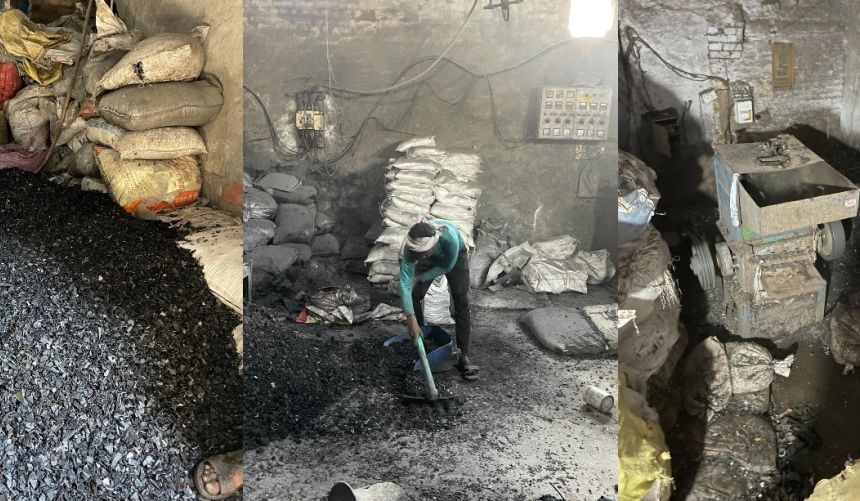Multi-scale analysis of the health attributes of plastic recycling in India (MAHAT)
The MAHAT project investigates the health risks of plastic recycling in India, focusing on vulnerable workers in the informal and quasi-formal sector and residents living near recycling sites. Its primary objective is to uncover the public health implications of recycling by analyzing the toxic chemicals released during these processes and understanding the societal factors that heighten the health risks for affected populations.

About the project
Plastic recycling is a cornerstone of sustainability, but in India, it often operates under informal or semi-formal conditions, exposing workers and communities to significant health risks. Workers in plastic scraping, sorting, and pelleting industries are exposed to hazardous substances and emissions, often without proper safeguards. These activities are frequently conducted in densely populated areas, amplifying the exposure of nearby residents to pollutants in air and water. While high-income countries have enacted stringent protections for waste workers, India’s burgeoning and largely unregulated plastic recycling sector—employing hundreds of thousands under precarious conditions—remains under-researched.
Led by the Norwegian Institute for Water Research (NIVA), the collaborative and interdisciplinary research project brings together expertise from SRM Institute of Science and Technology (India), MuGamma Consultants (India), and NILU – the Norwegian Institute for Air Research. The research is based in Chennai and centers on a largely overlooked segment of the plastic value chain: the Plastic Scraping, Sorting, and Re-Pelleting Industry (PSSRI). Employing hundreds of thousands of workers, the PSSRI is often located in densely populated urban areas, exposing millions of people to hazardous chemicals through air and water pollution.
MAHAT combines social and environmental sciences to assess the toxicological impact of pollutants while examining how inadequate protections, unequal power dynamics, and societal factors generate vulnerability and health inequities. This will contribute to fill an important gap in research—previously focused on other parts of the plastic value chain, primarily in developed countries—and provides important insights into the public health challenges posed by plastic recycling in low- and middle-income countries.
The findings will provide critical evidence to guide policy developments in India, reducing health risks and improving conditions in the recycling sector. Beyond national impact, MAHAT contributes to global efforts to ensure a just transition to end plastic polluhtion, aiming to safeguard the health and well-being of millions affected by the growing plastic recycling industry.
The project is funded by the Norwegian Research Council.
Partners:
- SRM University: SRM Institute of Science & Technology - Learn. Leap. Lead.
- MuGamma Consultants: https://www.mugammaconsultants.com/
- NILU: https://nilu.no/
 Marianne Mosberg
Marianne Mosberg
 Emmy Falk Nøklebye
Emmy Falk Nøklebye
 Hans Nicolai Adam
Hans Nicolai Adam
